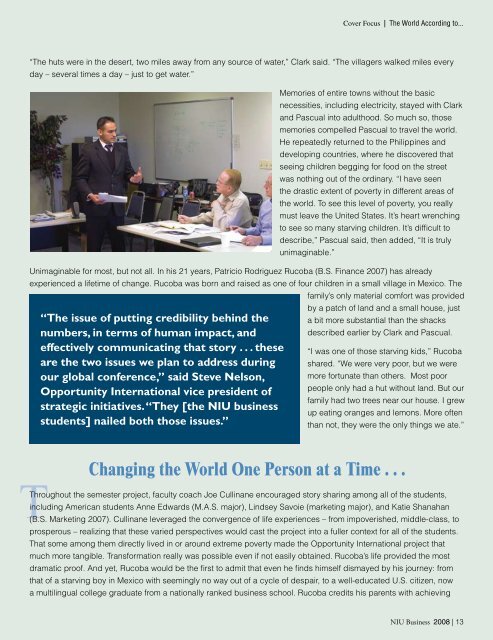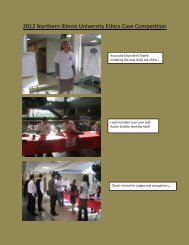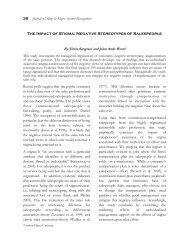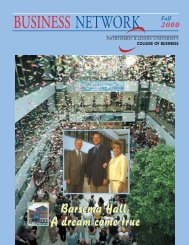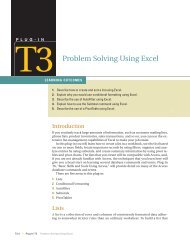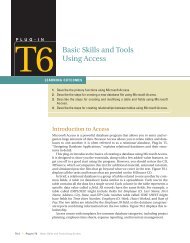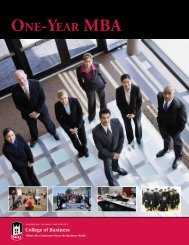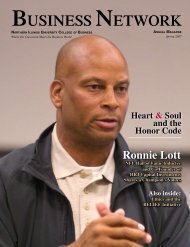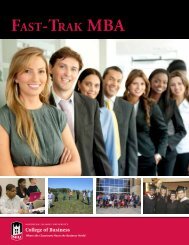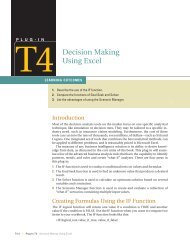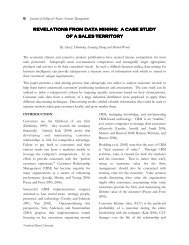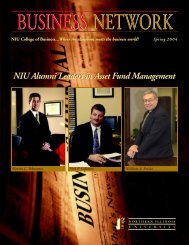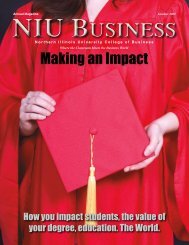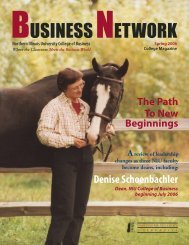Spring 2008 Issue - NIU College of Business - Northern Illinois ...
Spring 2008 Issue - NIU College of Business - Northern Illinois ...
Spring 2008 Issue - NIU College of Business - Northern Illinois ...
- No tags were found...
Create successful ePaper yourself
Turn your PDF publications into a flip-book with our unique Google optimized e-Paper software.
Cover Focus | The World According to...“The huts were in the desert, two miles away from any source <strong>of</strong> water,” Clark said. “The villagers walked miles everyday – several times a day – just to get water.”Memories <strong>of</strong> entire towns without the basicnecessities, including electricity, stayed with Clarkand Pascual into adulthood. So much so, thosememories compelled Pascual to travel the world.He repeatedly returned to the Philippines anddeveloping countries, where he discovered thatseeing children begging for food on the streetwas nothing out <strong>of</strong> the ordinary. “I have seenthe drastic extent <strong>of</strong> poverty in different areas <strong>of</strong>the world. To see this level <strong>of</strong> poverty, you reallymust leave the United States. It’s heart wrenchingto see so many starving children. It’s difficult todescribe,” Pascual said, then added, “It is trulyunimaginable.”Unimaginable for most, but not all. In his 21 years, Patricio Rodriguez Rucoba (B.S. Finance 2007) has alreadyexperienced a lifetime <strong>of</strong> change. Rucoba was born and raised as one <strong>of</strong> four children in a small village in Mexico. Thefamily’s only material comfort was providedby a patch <strong>of</strong> land and a small house, justa bit more substantial than the shacksdescribed earlier by Clark and Pascual.“The issue <strong>of</strong> putting credibility behind thenumbers, in terms <strong>of</strong> human impact, andeffectively communicating that story . . . theseare the two issues we plan to address duringour global conference,” said Steve Nelson,Opportunity International vice president <strong>of</strong>strategic initiatives. “They [the <strong>NIU</strong> businessstudents] nailed both those issues.”“I was one <strong>of</strong> those starving kids,” Rucobashared. “We were very poor, but we weremore fortunate than others. Most poorpeople only had a hut without land. But ourfamily had two trees near our house. I grewup eating oranges and lemons. More <strong>of</strong>tenthan not, they were the only things we ate.”Changing the World One Person at a Time . . .TThroughout the semester project, faculty coach Joe Cullinane encouraged story sharing among all <strong>of</strong> the students,including American students Anne Edwards (M.A.S. major), Lindsey Savoie (marketing major), and Katie Shanahan(B.S. Marketing 2007). Cullinane leveraged the convergence <strong>of</strong> life experiences – from impoverished, middle-class, toprosperous – realizing that these varied perspectives would cast the project into a fuller context for all <strong>of</strong> the students.That some among them directly lived in or around extreme poverty made the Opportunity International project thatmuch more tangible. Transformation really was possible even if not easily obtained. Rucoba’s life provided the mostdramatic pro<strong>of</strong>. And yet, Rucoba would be the first to admit that even he finds himself dismayed by his journey: fromthat <strong>of</strong> a starving boy in Mexico with seemingly no way out <strong>of</strong> a cycle <strong>of</strong> despair, to a well-educated U.S. citizen, nowa multilingual college graduate from a nationally ranked business school. Rucoba credits his parents with achieving<strong>NIU</strong> <strong>Business</strong> <strong>2008</strong> | 13


